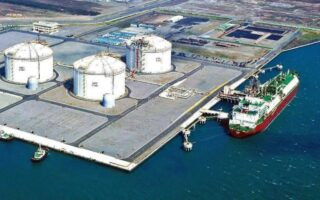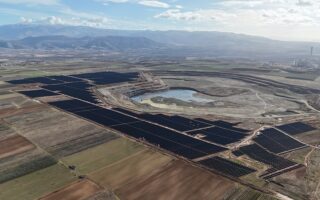Energy transition bill at €436 bln
Key to green economy lies in high-yield investments, argues Minister Thodoros Skylakakis

The energy transition of the Greek economy into a “green” one by 2050 will require investments totaling 436 billion euros, according to a government blueprint presented on Friday.
This cost is perhaps the biggest challenge of the revised National Plan for Energy and Climate (ESEK), presented at a special event by the Bank of Greece, with Minister of Environment and Energy Thodoros Skylakakis sending a clear message about the “end of subsidies.”
“There is no room for subsidies in this transition. Seven state budgets are not enough. I say this, to be realistic, to those who look at the ESEK and see easy subsidies in it,” said the minister.
He pointed out that “the key is high-yield investments, which require institutions that are healthy to be able to borrow and pay back their investments” and noted that past mistakes should not be repeated. “We paid a lot of subsidies in the past. We built monstrous factories that we will close,” he commented, pointing at the Ptolemaida 5 lignite unit, which cost around €2 billion and will be withdrawn in 2026 as part of PPC’s decarbonization program.
The minister underlined that the national plan for adapting the Greek economy to the new reality, as reflected in the new ESEK, does not fully cover the adjustment to climate change, as a result of the great weakness of European policy, where, as he stressed, the prevailing view was that we would prevent climate change before it developed.
“In Europe there is no serious plan for the fiscal impact and the adjustments needed to deal with the climate, so we are trying to limit the damage this crisis leaves behind,” he noted.
“There is no room for complacency, but a need for decisive and, above all, coordinated action,” emphasized the governor of the Bank of Greece, Yannis Stournaras. “At the Bank of Greece, we have been systematically dealing with climate and sustainability issues for the last 15 years, and since 2009 all our studies have shown that the costs of climate change are predicted to increase as long as no measures are taken,” he said.





